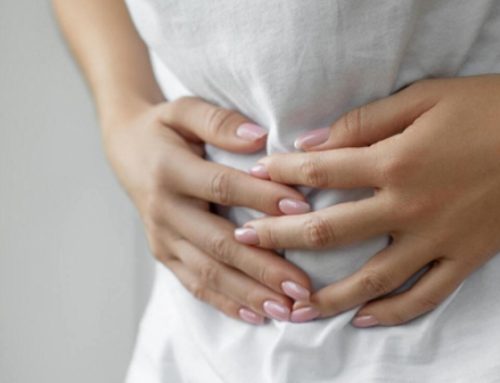The Role of Hormonal Imbalances in Ovulatory Disorders and Infertility
Hormonal imbalances play a pivotal role in the development of ovulatory disorders, a common cause of infertility among women. Understanding the intricate interplay of hormones involved in the menstrual cycle is essential for comprehending how disruptions can lead to ovulatory dysfunction and fertility challenges. In this article, we delve into the complex relationship between hormonal imbalances, ovulatory disorders, and infertility, shedding light on the mechanisms involved and exploring potential treatment approaches.
The Menstrual Cycle and Hormonal Regulation: The menstrual cycle is a carefully orchestrated series of events regulated by hormones produced by the hypothalamus, pituitary gland, ovaries, and other organs. Key hormones involved in the menstrual cycle include follicle-stimulating hormone (FSH), luteinizing hormone (LH), estrogen, and progesterone.
Disruptions in Hormonal Balance: Hormonal imbalances can disrupt the delicate interplay between these hormones, leading to ovulatory disorders and infertility. Common hormonal imbalances associated with ovulatory disorders include:
Hyperprolactinemia: Elevated levels of prolactin, a hormone that stimulates milk production, can inhibit ovulation by suppressing the secretion of gonadotropin-releasing hormone (GnRH) from the hypothalamus.
Thyroid Disorders: Hypothyroidism (underactive thyroid) or hyperthyroidism (overactive thyroid) can disrupt the menstrual cycle and impair ovulation by affecting the production and regulation of reproductive hormones.
Polycystic Ovary Syndrome (PCOS): PCOS is characterized by elevated androgen levels, insulin resistance, and irregular ovulation. Hormonal imbalances associated with PCOS, such as excess androgens and disrupted insulin signaling, can disrupt the normal ovulatory process.
Hypothalamic Dysfunction: Stress, excessive exercise, and low body weight can disrupt the hypothalamic-pituitary-ovarian axis, leading to hypothalamic amenorrhea and ovulatory dysfunction.
Impact on Fertility: Hormonal imbalances can significantly impact fertility by disrupting ovulation, impairing egg quality, and affecting the endometrial lining. Without regular ovulation, conception becomes challenging, leading to infertility. Additionally, hormonal imbalances can increase the risk of miscarriage and pregnancy complications.
Treatment Approaches: Treatment of ovulatory disorders and infertility often involves restoring hormonal balance to promote regular ovulation and improve fertility. Depending on the underlying cause of the hormonal imbalance, treatment options may include:
- Medications: Hormonal medications such as clomiphene citrate, letrozole, or gonadotropins may be prescribed to induce ovulation and regulate the menstrual cycle.
- Lifestyle Modifications: Adopting a healthy lifestyle, including maintaining a balanced diet, managing stress, and achieving a healthy weight, can help restore hormonal balance and improve fertility.
- Assisted Reproductive Technologies (ART): In cases where conventional treatments are unsuccessful, ART procedures such as in vitro fertilization (IVF) or intrauterine insemination (IUI) may be recommended to overcome ovulatory disorders and achieve pregnancy.
Hormonal imbalances play a critical role in the development of ovulatory disorders and infertility, affecting the menstrual cycle, ovulation, and fertility. By understanding the mechanisms underlying hormonal disruptions and implementing targeted treatment approaches, individuals with ovulatory disorders can improve their chances of conception and achieve their reproductive goals. Early diagnosis and personalized treatment plans tailored to address hormonal imbalances are essential for optimizing fertility outcomes and supporting the journey towards parenthood.
Chinese medicine and acupuncture can be effective in treating hormonal imbalances associated with ovulatory disorders by addressing the underlying patterns of disharmony and promoting overall balance in the body. Here are some ways in which Chinese medicine and acupuncture can help:
Regulating Qi and Blood Flow: Chinese medicine views hormonal imbalances as disruptions in the flow of Qi (vital energy) and blood in the body. Acupuncture, through the insertion of fine needles at specific acupuncture points, can regulate the flow of Qi and blood, helping to restore balance and harmony in the body. This can in turn regulate hormone levels and improve ovulatory function.
Nourishing Yin and Yang: Chinese medicine emphasizes the importance of balance between Yin and Yang energies in the body. Ovulatory disorders often involve imbalances in these energies. Herbal medicine formulations may be prescribed to nourish Yin and Yang, promoting hormonal equilibrium and supporting reproductive health.
Clearing Heat and Dampness: In cases where ovulatory disorders are associated with conditions such as Polycystic Ovary Syndrome (PCOS), there may be excess heat and dampness in the body. Chinese herbal medicine can include herbs with heat-clearing and dampness-dispersing properties to alleviate these symptoms and restore balance.
Supporting Liver Function: In Chinese medicine, the Liver plays a vital role in regulating the smooth flow of Qi and blood throughout the body. Imbalances in Liver function can lead to hormonal disturbances. Acupuncture and herbal medicine can be used to support Liver function, promoting hormonal balance and improving ovulatory function.
Stress Reduction: Emotional stress can exacerbate hormonal imbalances and disrupt ovulatory function. Acupuncture and Chinese herbal medicine can help alleviate stress and anxiety, promoting relaxation and emotional well-being. Stress reduction techniques such as mindfulness, Qi Gong, and Tai Chi may also be recommended.
Dietary and Lifestyle Recommendations: Chinese medicine often includes dietary and lifestyle advice tailored to the individual’s pattern of disharmony. This may involve dietary modifications, such as consuming foods that support reproductive health and avoiding those that exacerbate imbalances. Lifestyle recommendations may include stress management techniques, adequate rest, and moderate exercise.
By addressing the root causes of hormonal imbalances and promoting overall balance in the body, Chinese medicine and acupuncture can effectively treat ovulatory disorders and support fertility. It’s important to consult with a qualified Chinese medicine practitioner who can provide personalized treatment based on individual needs and patterns of disharmony.






















Leave A Comment